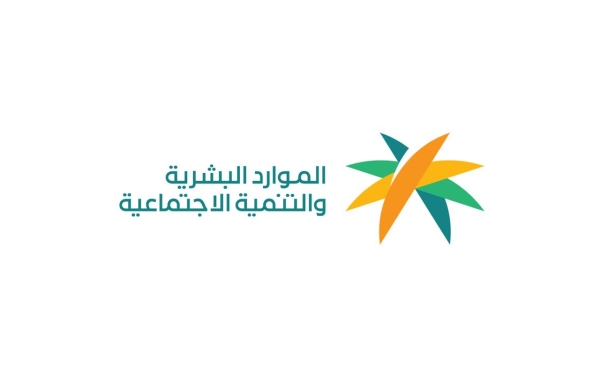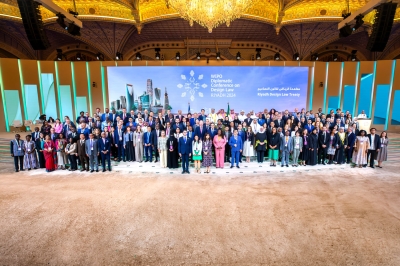

The Saudi Labor Market Strategy is a national strategy focused on regulating the labor market and its related entities in the Kingdom of Saudi Arabia. It was issued by the Ministry of Human Resources and Social Development and was approved by a decision of the Council of Ministers on December 8, 2020. The Saudi Labor Market Strategy is being implemented through twenty-five labor market initiatives.
The strategy aims to create an attractive work environment for both local and global talents, while also providing productive job opportunities and a dignified life for citizens. This contributes to achieving the goals of Saudi Vision 2030 in fostering a thriving and diversified economy.
Pillars of the Saudi Labor Market Strategy
The strategy focuses on fundamental reforms in the labor market across both the public and private sectors. It includes a series of initiatives with varying timelines (short, medium, and long-term). The strategy’s scope is centered on increasing the economic participation rate, enhancing skills and productivity, and improving labor market efficiency. Additionally, it aims to stimulate demand for labor and create job opportunities in partnership with the entities overseeing various sectors.
Saudi Labor Market Strategy Initiatives
The strategy includes twenty-five initiatives, divided into the following categories: five initiatives for working conditions, five initiatives for skills and values, three initiatives for infrastructure and information systems, three initiatives for labor market activation, three initiatives for recruitment, three initiatives for the employment system, two initiatives for growth and investment climate, and one initiative for governance. These initiatives were developed in three phases according to international best practices and cover six key reform areas with specific interim targets.
The six main reform areas of the Saudi Labor Market Strategy are diverse: the first, "Growth and Investment Climate",aims to develop economic sectors and regions, encourage small and medium-sized enterprises (SMEs), and attract foreign investment. The second, "Working Conditions", focuses on improving the work environment and contractual agreements. The third, "Employment System", seeks to enhance the job-matching process between job seekers and employers. The fourth, "Labor Market Activation", facilitates the participation of all citizen categories in the workforce. The fifth, "Skills and Values", aligns skills and values with current and future market needs. Lastly, the sixth, "Recruitment", targets attracting skilled talent and addressing gaps in market demands.
The objectives of the Saudi Labor Market Strategy
The objectives of the Saudi Labor Market Strategy include reducing the unemployment rate among citizens, accommodating the demand generated by Vision 2030 programs and sectoral strategies, increasing worker productivity, and investing in skills and human capital related to technology. It also aims to boost citizens' economic participation by encouraging their involvement and enhancing labor market efficiency by improving contractual conditions, safeguarding workers' rights, and creating a better work environment.
The strategy's objectives are expected to increase the number of workers, improve the Kingdom's ranking in the Global Competitiveness Index and the Human Capital Index, and boost the participation of Saudi women in the workforce. Additionally, the strategy aims to attract the private sector, enhance the effectiveness of employment platforms, increase worker productivity, and reduce reliance on low-skilled expatriates.
Programs and efforts to achieve the Saudi Labor Market Strategy
During the first half of 2021, the Ministry of Human Resources and Social Development achieved several objectives of the Saudi Labor Market Strategy across various sectors. In the labor sector, it exceeded the freelancing employment target by 140 percent, issuing 8,140 freelance work certificates. The ministry also issued decisions related to the Saudization of activities such as cafes, restaurants, grocery stores, central markets, closed commercial complexes, and remote customer service.
The ministry launched the Nitaqat Developer Program to support job stability in the private sector, aiming to create 340,000 jobs by 2024. Additionally, the decision to implement a minimum wage in various sectors was enforced, which contributed to increasing individual productivity and enhancing the attractiveness of the private sector for Saudi nationals.
The Kingdom secured a full membership seat in the International Labour Organization (ILO) for a three-year term. Since the implementation of the Contractual Relationship Improvement Initiative on March 14, 2021, until mid-year, 51,730 workers and 29,175 establishments benefited from the initiative. Additionally, the ministry electronically documented 3,610,880 contracts for around 152,810 establishments since the launch of the electronic contract documentation program.
The Ministry of Human Resources and Social Development approved the insurance on domestic worker contracts by issuing an insurance policy that covers the risks of non-compliance by both the employer and the worker. The ministry also implemented the Wage Protection System for domestic workers by establishing an electronic platform, Musaned, to monitor wage disbursements and mandate employers to process payments through it. Additionally, an insurance product was introduced to protect the rights of non-Saudi workers in the private sector in case of business failure or the employer's inability to meet obligations, with the state covering all costs associated with the product. Furthermore, the "Qiwa" platform was activated to support business establishment and facilitate access to human capital.
In the civil service sector, the Ministry of Human Resources and Social Development launched the Centralized Employment Information System, which aims to provide integrated digital services covering an employee's journey from hiring to retirement. It includes an accurate and up-to-date database of government human resources. Additionally, the ministry launched the Human Resources Transformation Program and the Maturity Scale, which is currently applied to six ministries, with plans for expansion to the remaining ministries. The ministry also introduced a Competency and Skills Assessment Center for public sector employees, designed to identify the strengths and weaknesses of leaders through analytical studies of leadership positions. Furthermore, several online training programs were provided to public sector employees via the "Ethrai" platform in collaboration with the Institute of Public Administration, as part of the National Remote Training Program.
Related quizzes
Related articles

